
John Fiske was an American philosopher and historian. He was heavily influenced by Herbert Spencer and applied Spencer's concepts of evolution to his own writings on linguistics, philosophy, religion, and history.

Raymond Geuss, FBA is an American political philosopher and scholar of 19th and 20th century European philosophy. He is currently Emeritus Professor in the Faculty of Philosophy, University of Cambridge. Geuss is primarily known for three reasons: his early account of ideology critique in The Idea of a Critical Theory; a recent collection of works instrumental to the emergence of political realism in Anglophone political philosophy over the last decade, including Philosophy and Real Politics; and a variety of free-standing essays on issues including aesthetics, Nietzsche, contextualism, phenomenology, intellectual history, culture and ancient philosophy.

Sir Frederick Pollock, 3rd Baronet PC, FBA was an English jurist best known for his History of English Law before the Time of Edward I, written with F.W. Maitland, and his lifelong correspondence with US Supreme Court Justice Oliver Wendell Holmes. He was a member of the Cambridge Apostles.

Jared Sparks was an American historian, educator, and Unitarian minister. He served as President of Harvard College from 1849 to 1853.
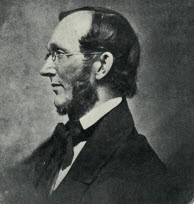
Francis Bowen was an American philosopher, writer, and educationalist.

William Ernest Hocking was an American idealist philosopher at Harvard University. He continued the work of his philosophical teacher Josiah Royce in revising idealism to integrate and fit into empiricism, naturalism and pragmatism. He said that metaphysics has to make inductions from experience: "That which does not work is not true." His major field of study was the philosophy of religion, but his 22 books included discussions of philosophy and human rights, world politics, freedom of the press, the philosophical psychology of human nature; education; and more. In 1958 he served as president of the Metaphysical Society of America. He led a highly influential study of missions in mainline Protestant churches in 1932. His "Laymen's Inquiry" recommended a greater emphasis on education and social welfare, transfer of power to local groups, less reliance on evangelizing and conversion, and a much more respectful appreciation for local religions.
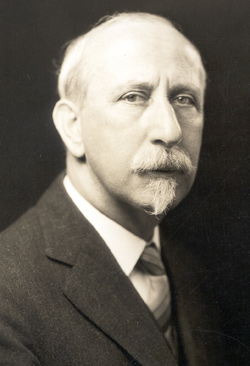
William Allan Neilson was a Scottish-American educator, writer and lexicographer, graduated in the University of Edinburgh in 1891 and became a PhD in Harvard University in 1898. He was president of Smith College between 1917 and 1939.

Edward Perkins Channing was an American historian and an author of a monumental History of the United States in six volumes, for which he won the 1926 Pulitzer Prize for History. His thorough research in printed sources and judicious judgments made the book a standard reference for scholars for decades. Channing taught at Harvard 1883–1929 and trained many PhD's who became professors at major universities.

Ralph Barton Perry was an American philosopher. He was a strident moral idealist who stated in 1909 that, to him, idealism meant "to interpret life consistently with ethical, scientific, and metaphysical truth." Perry's viewpoints on religion stressed the notion that religious thinking possessed legitimacy should it exist within a framework accepting of human reason and social progress.
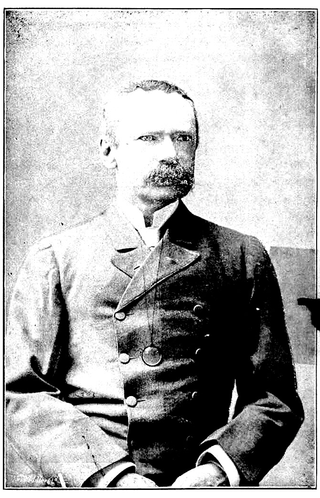
Arthur Anthony Macdonell, FBA was a Sanskrit scholar.

Paul Shorey was an American classical scholar.
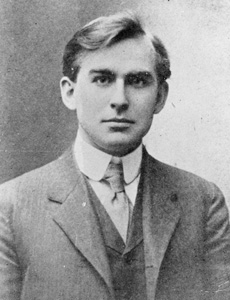
Tenney Frank was a prominent American ancient historian and classical scholar. He studied many aspects of Ancient Rome, for instance its economy, imperialism, demographics and epigraphy.

William Trufant Foster was an American educator and economist, whose theories were especially influential in the 1920s. He was the first president of Reed College.

George Herbert Palmer was an American scholar and author. He was a graduate, and then professor at Harvard University. He is also known for his published works, like the translation of The Odyssey (1884) and others about education and ethics, such as The New Education (1887) and The Glory of the Imperfect (1898).
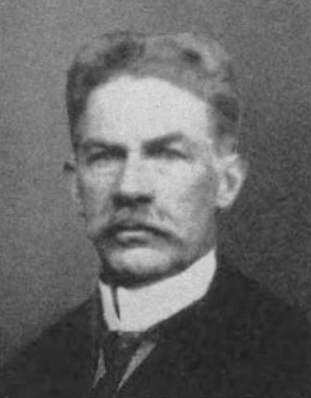
Herbert Weir Smyth was an American classical scholar. His comprehensive grammar of Ancient Greek has become a standard reference on the subject in English, comparable to that of William Watson Goodwin, whom he succeeded as Eliott Professor of Greek Literature at Harvard University.
Nathan Sivin, also known as Xiwen, was an American sinologist, historian, essayist, educator, and writer. He taught first at Massachusetts Institute of Technology, then at the University of Pennsylvania until his retirement in 2006.
Gareth B. Matthews was an American philosopher who specialized in ancient philosophy, medieval philosophy, philosophy of childhood and philosophy for children.
George Willis Botsford was an American classicist, ancient historian, and professor of history, specializing in Greek and Roman history. He is known for his textbooks on Greek and Roman history.















